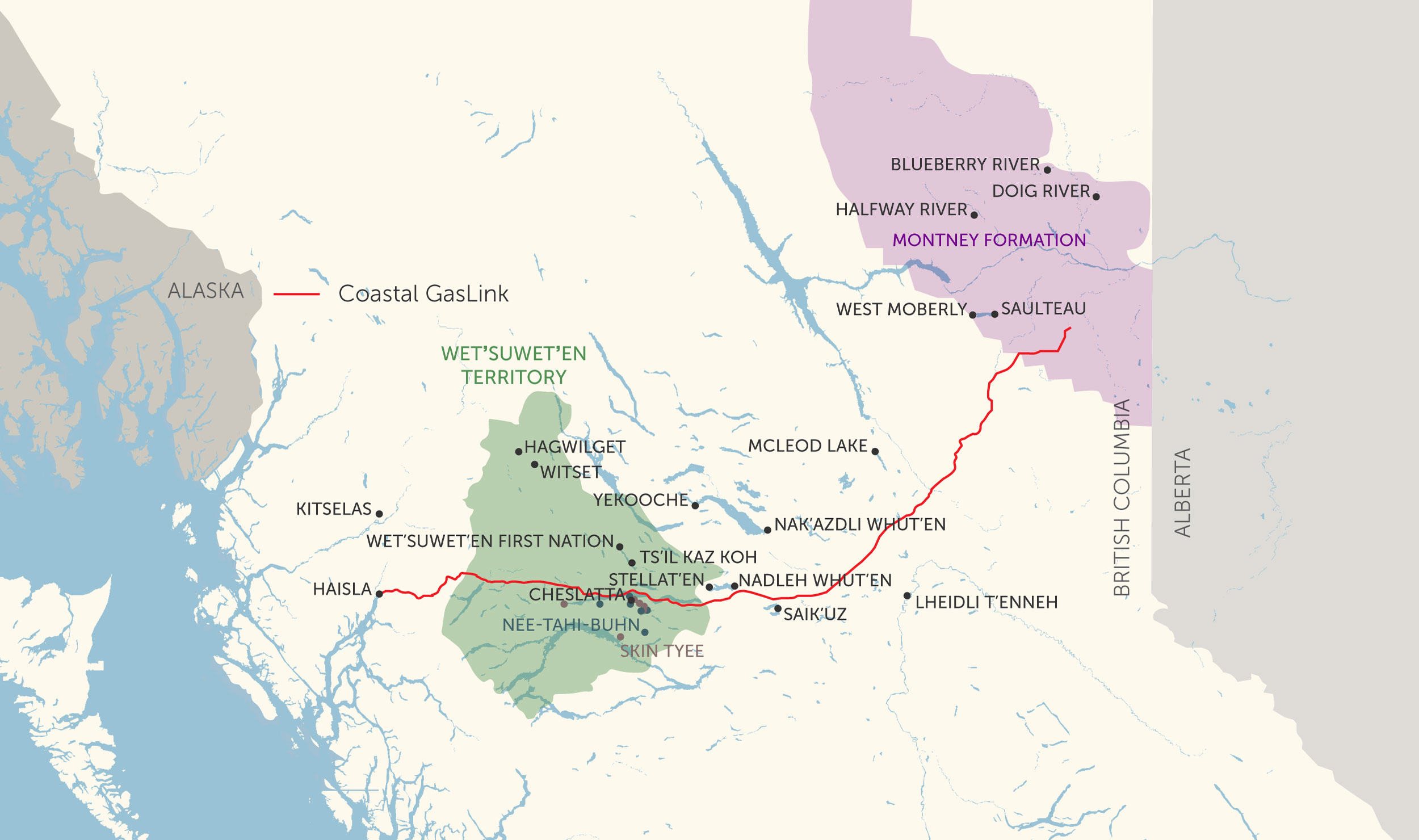
Goats, not glyphosate: critics see alternatives to Coastal GasLink’s herbicide plans
Backpacks full of chemical herbicides or goats and wildflowers? As TC Energy prepares its plans...
Approved by the British Columbia government in 2014, Coastal GasLink (CGL) is a 670-kilometre pipeline that connects underground gas resources in B.C.’s northeast to the LNG Canada liquefaction and export facility in Kitimat. It will be used to transport natural gas, which is mainly composed of methane (a powerful greenhouse gas that officially represents at least 13 per cent of Canada’s overall carbon pollution).
The pipeline crosses several Indigenous territories, including Wet’suwet’en lands in the northwest. To gain support for the project, the province and TC Energy, the Calgary-based pipeline builder, secured agreements with 20 elected First Nations along the route, including five of six elected Wet’suwet’en bands. But neither the government nor the company received free, prior and informed consent from the Wet’suwet’en Hereditary Chiefs, who oppose the project. An injunction issued by the B.C. Supreme Court in 2019 against Wet’suwet’en land defenders and their supporters set the stage for years of conflict and led to the arrests of more than 80 individuals, including Chiefs, Elders and Matriarchs.
Against a backdrop of conflict, delays and cost overruns, TC Energy divested part of its ownership of the contentious pipeline. Initially estimated to cost $6.2 billion, the project’s final price tag ballooned to $14.5 billion. In 2020, the company sold 65 per cent of Coastal GasLink to KKR, an American global investment company with headquarters in New York City, and the Alberta Investment Management Corporation. Two years later, TC Energy inked an agreement with 16 of 20 First Nations along the route, for the option to purchase 10 per cent of the project in equity shares after the pipeline is completed.

Since starting construction, the pipeline project was continually found to be violating environmental laws and has received more than $800,000 in financial penalties, mostly levied by the B.C. Environmental Assessment Office. A majority of the fines were issued for the company’s failure to prevent sediment from entering sensitive ecosystems, including wetlands, creeks and rivers.
With the full length of the pipeline installed, the company is responsible for reclamation work along the entire 670-kilometre right-of-way, which cuts through endangered caribou habitat, sensitive salmon ecosystems and Indigenous hunting, fishing and harvesting areas.
As of the beginning of 2024, the pipeline is “mechanically complete,” meaning it is ready to transport the gas. LNG Canada is entering its startup phase and its owners, a consortium of international fossil fuel companies, expect to start shipping in 2025. Coastal GasLink will also supply gas to Cedar LNG, a Haisla Nation-led liquefaction project approved by the B.C. government in 2023.
On Sept. 11, 2024, B.C.’s Environmental Assessment Office fined Coastal GasLink $590,000 — the project’s biggest fine yet — issuing 10 administrative penalties related to worksite inspections that took place during incidents in 2023. Those incidents were documented by The Narwhal following an Indigenous-led monitoring flight over the pipeline.

Backpacks full of chemical herbicides or goats and wildflowers? As TC Energy prepares its plans...

Top B.C. government officials deny TC Energy lobbyists have outsized access to decision makers. The...

Reminiscent of the Coastal GasLink conflict, the brewing clash over the Prince Rupert Gas Transmission...

B.C. has until the end of November to decide if the Prince Rupert Gas Transmission...

The latest fine is for a 2023 incident, the aftermath of which was documented by...

A brief blockade set up by Nisg̱a’a tribal protectors signals growing resistance to the Prince...

Gitanyow Hereditary Chiefs are blocking a road that leads to a work camp for the...

Plans are underway for the Nisga’a Nation to buy TC Energy’s 800-kilometre Prince Rupert Gas...

As tensions in northwest B.C. persist over pipelines, court-ordered injunctions and police enforcement, Gitxsan Hereditary...
Get the inside scoop on The Narwhal’s environment and climate reporting by signing up for our free newsletter. A $335 million funding commitment to fund...
Continue reading